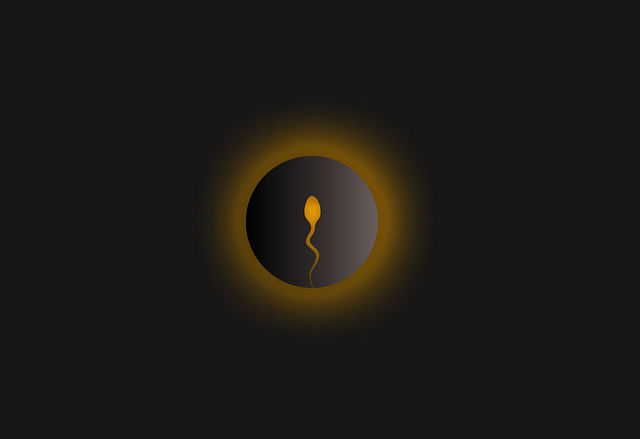IVF with donor eggs for male LGBTQ+ couples faces societal stigma and misconceptions despite growing acceptance of diverse families. Media representations often fail to accurately portray this process, leading to feelings of shame or reluctance. To create a more understanding environment, it's crucial to promote informed consent, empathy, and support to navigate the emotional, ethical, and legal aspects involved. By educating themselves and accessing inclusive resources, LGBTQ+ male couples can successfully navigate IVF with donor eggs, achieving their desired family structure while addressing unique challenges and fostering stronger bonds.
In recent years, the landscape of family-building options has evolved significantly, particularly for LGBTQ+ individuals seeking parenthood. This article delves into the complex world of egg donation, specifically addressing its role in forming families for male couples through IVF. We explore the current social perceptions, dispel common misconceptions, and navigate the legal and ethical challenges that accompany this path to parentalhood. Understanding these dynamics is crucial in fostering acceptance and embracing diverse family structures.
Understanding the Current Social Landscape: Stigma and Misconceptions Around Egg Donation
The social perceptions surrounding egg donation, particularly in the context of LGBTQ+ families pursuing IVF with donor eggs for male couples, are complex and multifaceted. While society has become more accepting of diverse family structures, there still exists a significant stigma and a dearth of understanding regarding this reproductive option. Many misconceptions cloud public opinion, leading to judgmental attitudes and barriers for those considering egg donation.
The media often portrays egg donation in a simplistic or stigmatizing light, reinforcing outdated stereotypes about donors and recipients. As a result, potential families may feel pressured or ashamed to discuss their paths to parenthood openly. In reality, IVF with donor eggs is a complex medical procedure that involves emotional, ethical, and legal considerations for all parties involved. It’s crucial to foster an environment of informed consent, empathy, and support to navigate these challenges effectively.
The Role of IVF in LGBTQ+ Families: A Journey Towards Parentalhood
In many LGBTQ+ families, achieving parentalhood through in vitro fertilization (IVF) with donor eggs becomes a gateway to building their desired family structure. This process is particularly significant for male couples who may face unique challenges navigating their journey towards parenthood. IVF offers them a chance to overcome biological barriers and embrace modern family creation methods. The technology allows them to select donor eggs that match specific criteria, ensuring genetic compatibility and potentially reducing the risk of certain health complications associated with egg donation.
This procedure is not just about medical advancements; it’s an emotional and social journey as well. Male couples often have to contend with societal perceptions surrounding egg donation, but IVF centers equipped to handle LGBTQ+ families can provide a supportive environment. Educating themselves about the process, choosing a reputable clinic, and accessing resources that cater to their needs are crucial steps in this path. With the right support, these couples can successfully navigate IVF with donor eggs for male couples, ensuring they experience the joys of parenthood while raising awareness about inclusivity in family-building practices.
Deconstructing the Perception: Benefits and Contributions of Donor Eggs for Male Couples
The perception of egg donation, especially in the context of IVF for male LGBTQ+ couples, often faces societal scrutiny and misconstrued ideas. It’s essential to deconstruct these misconceptions to understand the profound impact donor eggs have on these families’ journeys towards parenthood. Many assume that using donor eggs diminishes the role of the male partner, but this couldn’t be further from the truth; it empowers them to become fathers through a collaborative process. In many cases, LGBTQ+ men bring invaluable emotional support and financial resources to the table, making them equally involved in the entire IVF procedure.
The benefits of IVF with donor eggs for male couples are numerous. It offers a path to parenthood that may be more accessible than other methods. Donor eggs ensure genetic diversity, providing healthy embryos with reduced risks of genetic disorders. This process also respects the desire for biological connection while accommodating the unique circumstances these families face. By embracing modern reproductive technologies, LGBTQ+ men can experience the joy of creating their families without societal barriers, fostering stronger bonds and a deeper sense of fulfillment.
Fostering Acceptance: Navigating Legal, Ethical, and Social Challenges in Modern Family Building
In today’s digital era, the landscape of family building has evolved dramatically, especially within LGBTQ+ communities. For male couples considering IVF with donor eggs, navigating the intricate tapestry of legal and ethical considerations is paramount. As society continues to embrace diverse family structures, fostering acceptance becomes a collective responsibility.
Challenges persist, from legal frameworks that once lagged behind societal shifts to social perceptions that can be both nuanced and detrimental. However, modern family building offers innovative solutions, revolutionizing how LGBTQ+ couples create their families. By understanding and addressing these challenges head-on, we enable a more inclusive environment where every family, regardless of composition, can thrive.
In navigating the complexities of building families, IVF with donor eggs for male couples has emerged as a significant path towards parentalhood within LGBTQ+ communities. By addressing social perceptions and misconceptions head-on, society can foster acceptance and support for diverse family structures. The legal and ethical frameworks surrounding egg donation play a crucial role in ensuring these families’ rights and well-being. Ultimately, deconstructing the stigma associated with donor eggs allows us to celebrate the love and commitment of LGBTQ+ parents while embracing the evolving tapestry of modern family-building practices.
